This article was co-authored by Dmitriy Fomichenko. Dmitriy Fomichenko is the president of Sense Financial Services LLC, a boutique financial firm specializing in self-directed retirement accounts with checkbook control based in Orange County, California. With over 19 years of financial planning and advising experience, Dmitry assists and educates thousands of individuals on how to use self-directed IRA and Solo 401k to invest in alternative assets. He is the author of the book "IRA Makeover" and is a licensed California real estate broker.
This article has been viewed 21,720 times.
With house prices rising and the possibility of owning a house at a younger age decreasing for younger generations, the dream of buying a house can seem impossible. But, with careful planning and the will to do some serious saving, you'll be able to achieve your goal and set yourself up for the future.
Steps
-
1Find a source of income. You can't save money if you don't have money coming in, so this step is crucial. Finding a job can be difficult, but in the meantime, things like babysitting, lawn mowing, or doing household chores for pocket money can be a huge help.
- Ideally, you will want a job in order to start saving a good amount each week, so if you don't have a job it would be best to start hunting for one! Even a part time job will be good - especially if you go to school and cannot work full time.
-
2Put away at least ten percent of your income. In an ideal world, you wouldn't need or want to spend any money at all and would be able to save it all, but this is simply too unrealistic of an expectation. You'll want to account for things like phone credit, data, fuel, board/rent, food, and other expenses in your life.
- If you still live at home and don't need to pay for anything, you still may want to spend a little bit of money to reward yourself or go out with friends. By saving at least 10% each week (or however frequently you get paid), you're putting away a small amount that will add up in the long run.
- If you are able to put away more, that is brilliant! Do that - the more you're able to save each time you're paid, the faster your savings account will grow.
- Remember to reward yourself for your good money habits - it might seem a little backwards at first, but it's good to not be so hard on yourself that you cannot enjoy any of the money you're earning until you reach your goal.
- If you can't always save the same amount each time, don't worry - just do your best!
Advertisement -
3Create a budget if you have a lot of outgoing costs each week. This step is optional, but a budget will help you to save a lot of money by identifying exactly what you spend your money on, and how much. Some things are necessary, but others might not be so necessary.
- You might find that you're spending an extra $20 per week by buying lunch every other day, for example. Saving doesn't mean you can't have any fun, but of course, if you can minimize your outgoing costs, then it will impact the amount you can save. Every dollar counts - it all adds up.
-
4Decide what you can and can't afford. Take a look at your wages and also the house prices on the market. Your first house may not be fancy or very elaborate, but it is very important to set sights on something realistic and achievable, and then upgrade from there if you wish to do so. Remember that the minimum deposit for a house is ten percent, although generally the lowest will be around twenty percent.
- Keep these figures in mind when deciding what you will save because while it might not seem like much, it can be quite a lot to save, especially if you aren't earning much and/or have outgoing costs.
- For example, you may decide that the highest you'd pay for a house is $200,000. A deposit of ten percent - the bare minimum - would be $20,000. A deposit of twenty percent would be $40,000.
- Now that you know the highest you'd be willing to pay, you can set a savings goal of between $20,000 and $40,000 and go from there. This way, when you start to look at houses, you'll know you can afford that much at most, or something cheaper if it were to come along.
- Getting the downpayment out of the way is only part of the process. It's important to be realistic and make sure you'll be able to pay down your mortgage.
- Keep these figures in mind when deciding what you will save because while it might not seem like much, it can be quite a lot to save, especially if you aren't earning much and/or have outgoing costs.
-
5Start looking at your money situation. Buying a house will almost certainly require you to get a home loan, which isn't a bad thing at all. What matters for you right now is making sure that getting one won't be too much of a hassle. When assessing whether they'll give you a loan, a bank will look at things such as your income, what you own (think savings, a car, or other important assets), and what you owe.
- Therefore, if you can avoid getting into unnecessary debt then do so. If you seem financially stable, then banks will be more likely to lend you their money.
- Another thing to consider is loan repayments. Loans come with interest payments, which could be an obstacle if you're already tight on money.
- Talk to someone about it and decide what you can and can't afford. You don't want to get financially in over your head and not be able to pay off the loan. The best thing is, if you have already decided how much you're willing to save and have started, banks may be willing to give you a pre-approved loan.
- This means, essentially, that when you do find a house you like, you'll have your money saved, and the bank has already agreed to lend you a loan. It will put you ahead of others wanting to buy that house if you already have the money to pay.
-
6Decide where you want to live. Would it be close to where you are now? Closer to friends? Or somewhere completely different? It's important to know where you'd like to end up because houses could be cheaper or more expensive in that area.
- It's also worth finding out what the place is like. Is it safe? Will there be many people around? Will it be close to places such as school or work? The more you know about where you'd like to live, the better. Start looking at house prices in that area to try and decide how much a house would generally be.
-
7Think about what you are looking for in a house. Don't get too excited and want to buy just any house. You want something that works for you. If you want things like a back yard, or a carport, then look for houses that have those things.
- Since it'll be your house, you definitely want it to be just right for you! Also take a look at how many bedrooms the house has. You might be moving out alone, or with a significant other, or somebody else. Whatever the situation, keep in mind how many bedrooms you'll need. If you can go for a house that has one extra bedroom, it could be a good idea too. You can rent out the room to help pay off your mortgage, or just have it as a spare for friends and family.
-
8Find out if there are grants in your country for young people buying their first home. It will differ from country to country but there may be a government scheme in place to help you. It's definitely worth looking into because it will save you money and in general and make buying your first house a bit easier. Buying a house at a young age is a great advantage to have and people want to help!
-
9Stick to your goal. It might take a while to save up the funds and find where you want to be, but keep your goal in sight and stick to it.
-
10Wait it out. You're a teen, don't worry too much about this yet. Just have fun and live your life.
Warnings
- Don't get so caught up in saving that you forget to have fun. You should spend a little here and there on things you like, such as going out with a friend, dinner, or maybe movies. Rewarding yourself for your hard work is important so that you don't end up resenting your saving with "no payoff". Of course there's the end goal, but it's nice to boost yourself and not be so hard out that you won't enjoy your hard earned money at all.⧼thumbs_response⧽
- Get screened for generalized anxiety disorder if you are often worrying about your future.⧼thumbs_response⧽
- Don't spend all your savings on a house. It's important to live on a budget and to still have emergency funds.⧼thumbs_response⧽


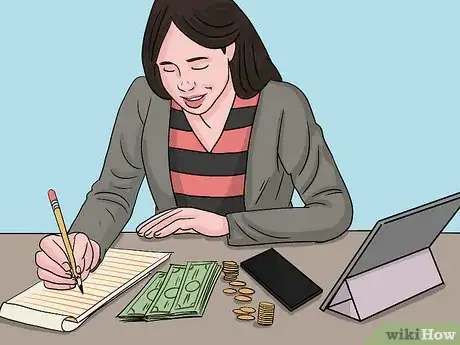
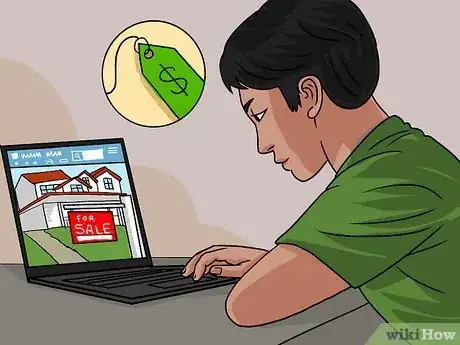
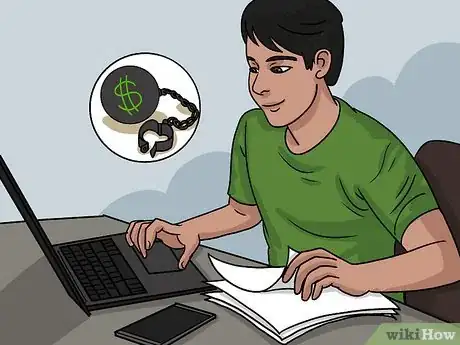
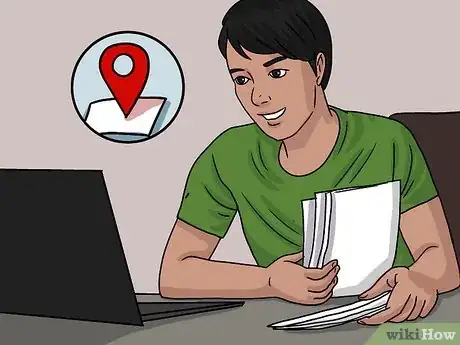
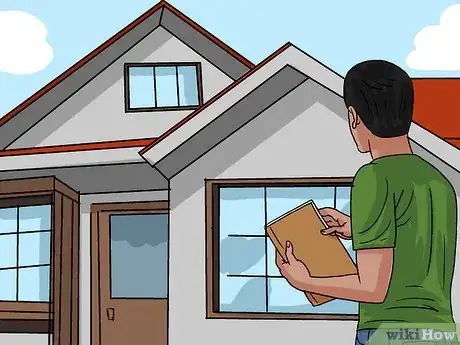
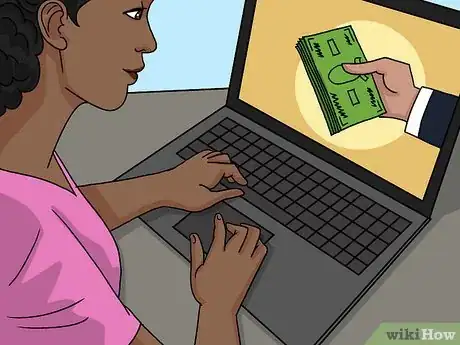
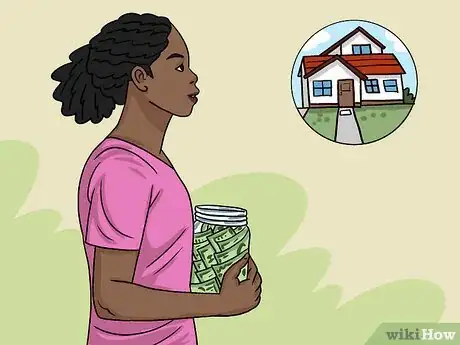
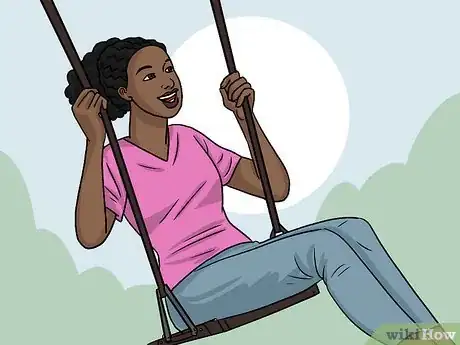
-Step-18-Version-7.webp)
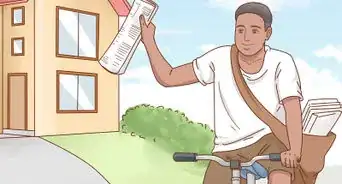






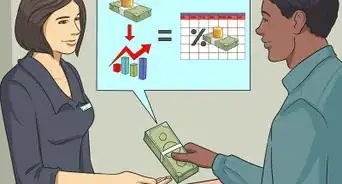

-Step-22-Version-2.webp)








-Step-18-Version-7.webp)





































